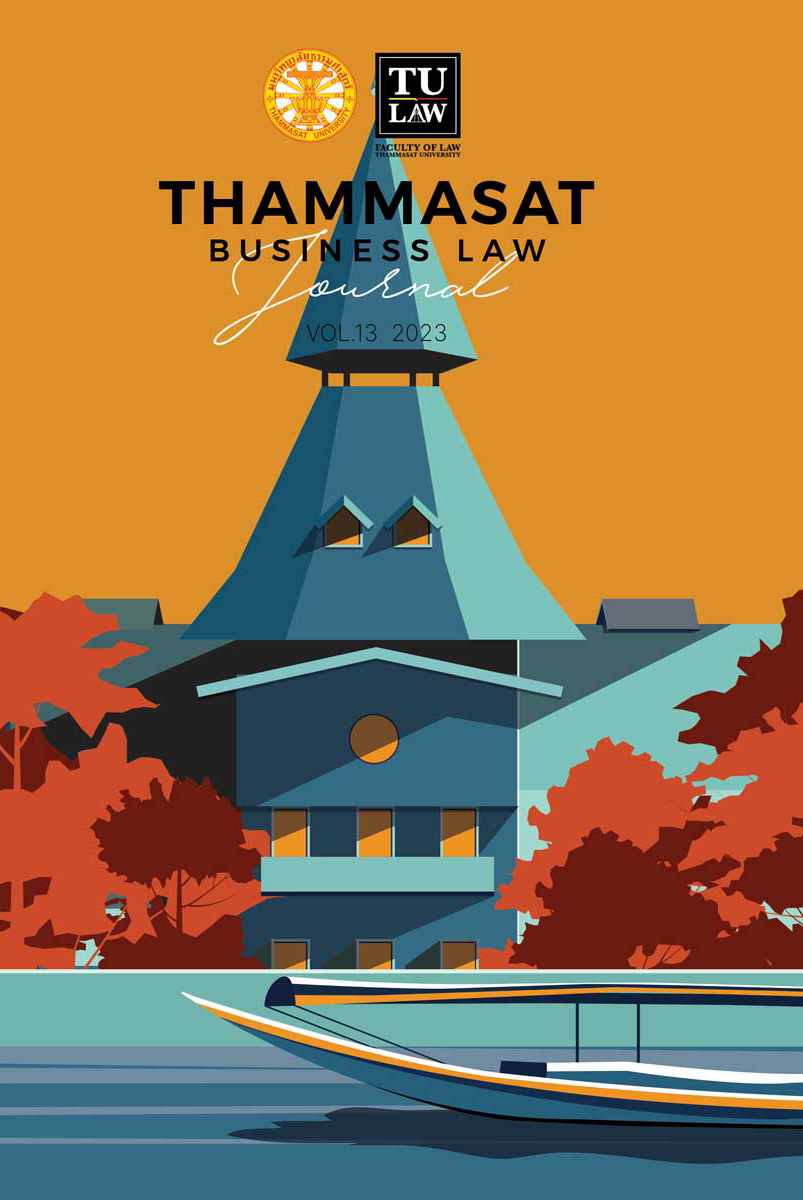The Future of Contingent Fee in Thailand
Main Article Content
Abstract
Article Details

This work is licensed under a Creative Commons Attribution-NonCommercial-NoDerivatives 4.0 International License.
References
Dissertations
Sada Wongchotewattana, ‘Attorney’s Role and Attorney Fee Award in Class Action’, Masters of Law Degree Thesis, Thammasat University (2016)
Journals
Virginia G. Maurer, Robert E. Thomas, Pamela A. DeBooth, ‘Attorney Fee Arrangements: The U.S. and Western Perspectives’, 19 Nw. J. Int'l L. & Bus. 272 (1998-1999)
Legislations
Thai Civil Procedure Code B.E. 2477 (1934)
The French National Internal Regulations of the legal profession (RIN) 1971
The German Act on the Remuneration of Lawyers (RVG) 2004
The Regulations of Lawyer Council (of Thailand) regarding the ethic of lawyers B.E. 2529 (1986)
The Singapore Legal Professional Act 1966
The Singapore Legal Profession (Professional Conduct) Rules 2015
The Thailand Lawyer Act B.E. 2457 (1914)
The Thailand Lawyer Act B.E. 2477 (1934)
The Thailand Lawyer Act B.E. 2508 (1965)
The United Kingdom Courts and Legal Services Act 1990
Court Decisions
Arden v. Patterson, 5 Johns. Ch. 44 (N.Y. Ch. 1821)
Geraghty & Co v Awwad & Anor [1999] EWCA Civ 3036
Law Society of Singapore v Kurubalan s/o Manickam Rengaraju, [2013] SGHC 135
Law Society of Singapore v. Lau See Jin Jeffrey, [2017] SGHC 30
Neville v. London Express (1919) A.C. 369
Paris Court of Appeal (1er Ch. B), 10 July 1992, D. 1992
The Decision of the Thai Supreme Court no. 1887/2500 (1957 A.D.)
The Decision of the Thai Supreme Court no. 1454/2510 (1967 A.D.)
The Decision of the Thai Supreme Court no. 1443/2545 (2002 A.D.)
The Decision of the Thai Supreme Court no. 1260/2543 (2000 A.D.) (Convention)
The Decision of the Thai Supreme Court no. 810/2554 (2011 A.D.)
The Decision of the Thai Supreme Court no. 1584/2555 (2012 A.D.)
The Decision of the Thai Supreme Court no. 5162/2563 (2020 A.D.)


